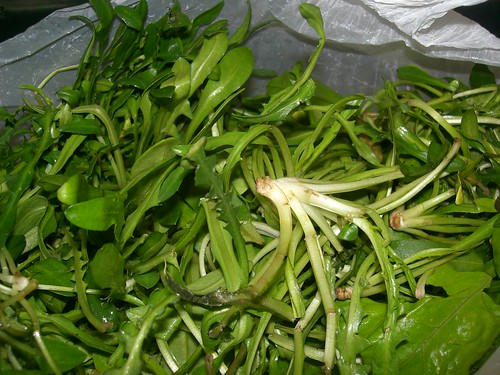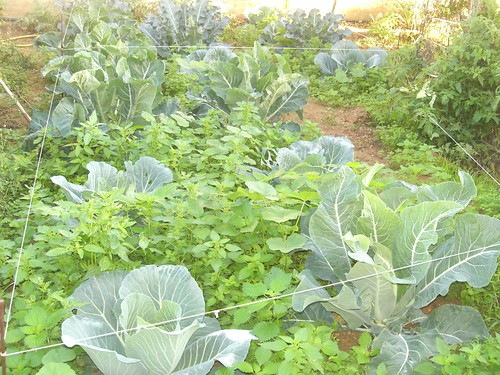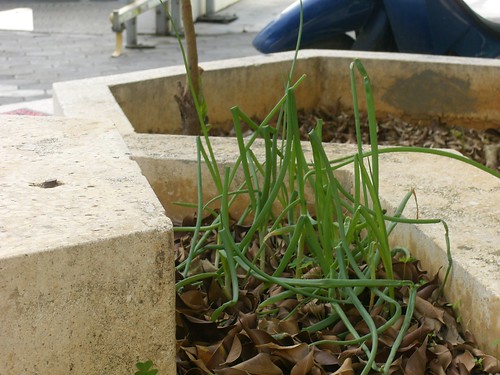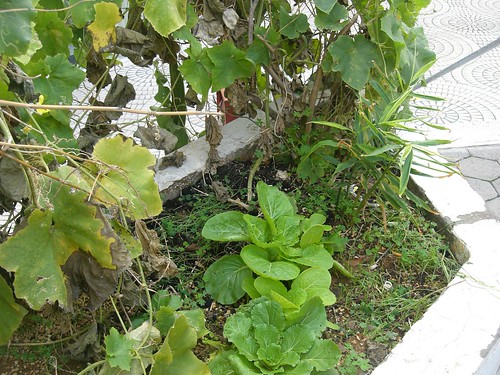(I originally published this post on my other blog - Organically Cooked - on the 5th of December, one day before Greece was plunged into chaos after the death of Alexis.)
There's a serious economic crisis reigning in Greece, invisibly infiltrating the town of hania, visible only the those who read between the lines. People want to work, but are either denied the right to do so, or can't find enough of it. The state has always made a show of their provision of free health care to their protegees, the privileged public servants of Greece. But it has recently been revealed that this free care was at the expense of private businesses and promises that the owners would be paid; the chemists' union has stopped providing drugs to state-insured citizens, and doctors have stopped treating state-insured patients for free. Boutiques and specialised stores are void of customers. The only businesses doing well in Greece are the banks - they're always full of people, people paying off their debts, people withdrawing cash, people taking out loans, people transferring their debts from one bank to another; in general, people needing money.
There's a serious economic crisis reigning in Greece, invisibly infiltrating the town of hania, visible only the those who read between the lines. People want to work, but are either denied the right to do so, or can't find enough of it. The state has always made a show of their provision of free health care to their protegees, the privileged public servants of Greece. But it has recently been revealed that this free care was at the expense of private businesses and promises that the owners would be paid; the chemists' union has stopped providing drugs to state-insured citizens, and doctors have stopped treating state-insured patients for free. Boutiques and specialised stores are void of customers. The only businesses doing well in Greece are the banks - they're always full of people, people paying off their debts, people withdrawing cash, people taking out loans, people transferring their debts from one bank to another; in general, people needing money.
The economic crisis has hit food sales. In Hania, stamnagathi is a prized green, usually selling for at least 7 euro a kilo; in the heart of winter, I've paid more than 8 euro a kilo, which in some cases is more than the price of meat per kilo. Stamnagathi is a fortnightly staple in our house, alternating with other more conventional greens such as cabbage and brocolli. So you can imagine how thrilled I was to find it selling at less than 5 euro a kilo last week. At that price, I should have bought the whole crate and washed, boiled and frozen it to last me until the end of winter.
As with any cheap product, I was worried about buying low quality: price is nearly always associated with quality, even if this supposition is only in the mind. I decided to ask the shopkeeper why the price of stamnagathi had dropped dramatically. The price of petrol has fallen dramatically, but here's what the shopkeeper had to say:
"This year, stamnagathi has had a slow start because it hasn't rained so much. There has been a sterady supply of it, but it hasn't had that lush green look it used to have at this time of year last year. (I had bought some at this time, and it was rather tasteless and dry.) Now that it's been raining more, it has started to grow more profusely. I was selling it last week at just under 7 euro a kilo, but it wasn't selling. Stamnagathi has always sold at constant levels right throughout the winter. I think it's got to do with the economic crisis. Now stamnagathi is being brought in to us sorted into two types (that's never happened before): the large thick glossy type which sells at a higher price, and the small thin type which sells at a lower price. It gives people a choice price-wise, but it's really the same thing."
This discussion made me feel very guilty about spending my hard-earned income on a bag of spinach, since the garden is full of nettles, and nettles really do taste like spinach in a spanakopita. I was too lazy to bother harvesting them.
The economic crisis was made more obvious to me recently by an amazing discovery I made while getting some chores done in the town centre. I was to meet up with someone while I was there, and we arranged a meeting place. I was the first to arrive at the shopping mall - the only one in Hania - so I wandered around it until my friend arrived.
The shopping centre reminds me of other shopping precincts around the world, the kind I used to go to in New Zealand, where the shops were always crammed with colourful wares, while the street kids hung around on the benches in the middle of the squares, sniffing glue to while away the time; all that glitters is not gold.
The shopping complex on Boniali street in Hania was modelled around typical shopping malls in large cities, in the hope that it will attract an atmosphere of shoppers that come to view the place as an events arena. People could window shop, try out new things, have a bite to eat from one of the eateries, maybe even food-court style, and entertain their kids. One look at the mall now, and you will think that the economic crisis has had a serious impact in Hania; most of the shop windows are dusty and the units empty. The ones that are being used are divided into two categories: the street-facing units are used as shops selling consumer items (they are all being used), while the offices tucked away in the large marble corridors of the complex, invisible at street level, are being used as offices for private businesses such as engineering and graphics firms. There are many unused compartments, turning the wide corridors into unattractive alleyways that look unsafe. There is underground parking available, but it is expensive; the suers of the car park are usually people who run businesses in the shopping mall and its environs rather than shoppers.
The shopping centre has not been affected by the economic crisis; it was simply never a success. The local community does not do their shopping according to the laws of a shopping mall culture. People use stores referred to them by contacts, or on their own judgment; they love walking down the main shopping streets checking out the windows. If it isn't at street level, then it's invisible. Even food shopping is specialised: if it isn't general supplies which you can pick up from your one-stop shop, the supermarket, it's mizithra, xinohondro, and hand-made filo pastry, sold in stores that have a long established tradition of selling the same product in the same location. Why would anyone want to buy their mizithra from a specialty store located in a modern building with no history? The shops in the mall that opened up and shut down, one after the other, represented markets that were affected by recessions and booms in the economy, as well as seasonal differences, mainly knick-knack articles which made suitable Christmas gifts or interesting artistic additions to the household furnishings - when one could afford it.
Life in Hania does not centre around a shopping mall. Events in a small Mediteranean town have never centred on a commercial enterprise. People have their own private circle of friends; either that, or they organise a get-together with their families, entertaining in their own homes, or going out to cafes where they would be seen, as well as being able to people-watch themselves. This plush clean modern complex, comprised of three different buildings with offices located at the higher levels, became a lunar wasteground with a clinically clean white appearance. Its flower boxes, surrounded by benches for visitors' comfort, are void of colour, filled mainly with weeded earth, save a few sturdy yucca shrubs, planted at a time when there was some hope that the shopping centre would be more successful. But if someone cared to look more closely, they would also have found something else growing in the flower boxes, which would probably seem preposterous in another town:
some spring onions, ...
... a few lettuce plants with a climbing pumpkin creeper and grapevine in the background...
... and some coriander.
Someone's using these useless flower boxes as their garden. Maybe it's one of the more organically-minded store owners in the mall, maybe it's someone who lives in one of the boxy little apartments in the inner-city, maybe it's someone who simply doesn't have a garden, but wants to eat fresh greens that they have planted themselves. Could it be someone who's feeling the economic pinch, trying to feed a family? It was the coriander that got me wondering: maybe it's an economic migrant that wants a taste of his (or her) homeland. Coriander is never sold at the fresh produce section of our supermarkets. Although I've started growing coriander at home, this herb is too pungent for my family's tastebuds; it's already starting to seed before I had the chance to use it.
Behind the facade of the big flash cars that don't fit onto our narrow roads, the flashy Christmas decorations in the shop windows and the expensive price tags in the high fashion boutiques, a cloud of insecurity hangs over Hania, a fair distance away from our senses so as to seem intangible.
(And the next evening, that cloud of insecurity burst into a violent thunderstorm, drenching us with riots, demonstrations and strikes.)
©All Rights Reserved/Organically cooked. No part of this blog may be reproduced and/or copied by any means without prior consent from Maria Verivaki.






Καλά Χριστούγεννα εύχομαι κι ένα καλύτερο 2009
ReplyDelete